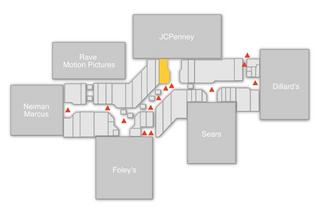If you're into jazz, I don't need to tell you who Wayne Shorter is. Wayne Shorter: saxophonist / composer extraordinaire. Wayne Shorter: member of Miles' classic quintet in the late '60s. Wayne Shorter: co-founder of fusion ensemble Weather Report. Wayne Shorter: acoustic revivalist with new quartet in the new millenium.
Wayne Shorter:
"Life is so mysterious, to me," says Shorter. "I can't stop at any one thing to say, 'Oh, this is what it is.' And I think it's always becoming, always becoming. That's the adventure. And imagination is part of that adventure.'"Last night's adventure at the lovely Touhill Performing Arts Center (an I.M. Pei creation): Shorter and his quartet (Brian Blade, John Patitucci and Danilo Perez) with a small group from the Saint Louis Symphony Orchestra. I was sceptical, I admit. Jazz "with strings"? No thanks.
This was not jazz with strings. This was one of the most creative jazz quartets in recent memory joined by a robust new instrument composed of some 20 people. The orchestra sometimes took on the role of a horn, laying down the melodic line. Sometimes they were another rhythm section, keeping time, adding percussive flourishes. And they never, never got in the way of the main quartet's improvization: they would stop playing while the quartet improvized, the conductor (David Robertson), looking on with an expression of sheer joy. At the end of each piece, Wayne Shorter gave him a thumbs up.
Wayne Shorter: I was close enough to see the lines on his face. (Though its a remarkably young face, considering his 72 years.) His posture is slightly stooped, head slightly bowed, as if constantly ready to play. It gives him, though, the look of a very shy person. Or maybe a Zen priest.
And he said not a word to the audience. He let David Robertson do the talking, which consisted almost exclusively of announcing the titles being played. (And they were: Angola, Our Shadow Hill Way, Orbits, Joy Rider, Midnight in Carlotta's Hair, Novus, Vendiento Alegria.) Someone in the balcony kept whooping out calls during the applause: "Wayne Shorter!" His eyes moved a little toward the noise, but he didn't respond.
It was glorious, my friends. Truly glorious. And if one of the pleasures of live jazz is seeing the physicality of the music, another is seeing the joy in their bodies. Lord, that John Patitucci can make some expressive faces. As can Danilo Perez. I couldn't see Brian Blades' face very well (it was obscured by his drum set), but C. assures me he was doing it, too.
Wayne, though. Oh, Wayne. Zen priest Wayne. He stood patiently, usually holding his soprano sax. His notes were spare. On one solo, he let it rip, and John Patitucci laughed. I'm pretty sure he played the tenor for only one piece. At the end of another, he put it on, waited. Started to play. Then took it off. Took off the neck piece. Picked up the soprano. Put it to his mouth a time or two. Never played. He didn't feel the need. There were sounds enough.
But the encore. Mmm. The encore. He played a wonderful, long, seering solo for the encore.
Sure, we had to drive the two hours there and back. Who cares? I've heard Wayne Shorter live. The sound of becoming.
[And as a bonus: I sat by a man named James who told me McCoy Tyner will be at a club in St. Louis next week. McCoy Tyner! Can you believe it? And then James proceded to tell me that years ago he heard Tyner play with Coltrane (and the rest of the classic quartet) in East St. Louis. After the set, James was hitchhiking, looking for a ride to the city's segregated hotel. A station wagon pulls up: it's Coltrane behind the wheel. Mmm. Hmm.]
{post ends here; ignore the link below}



